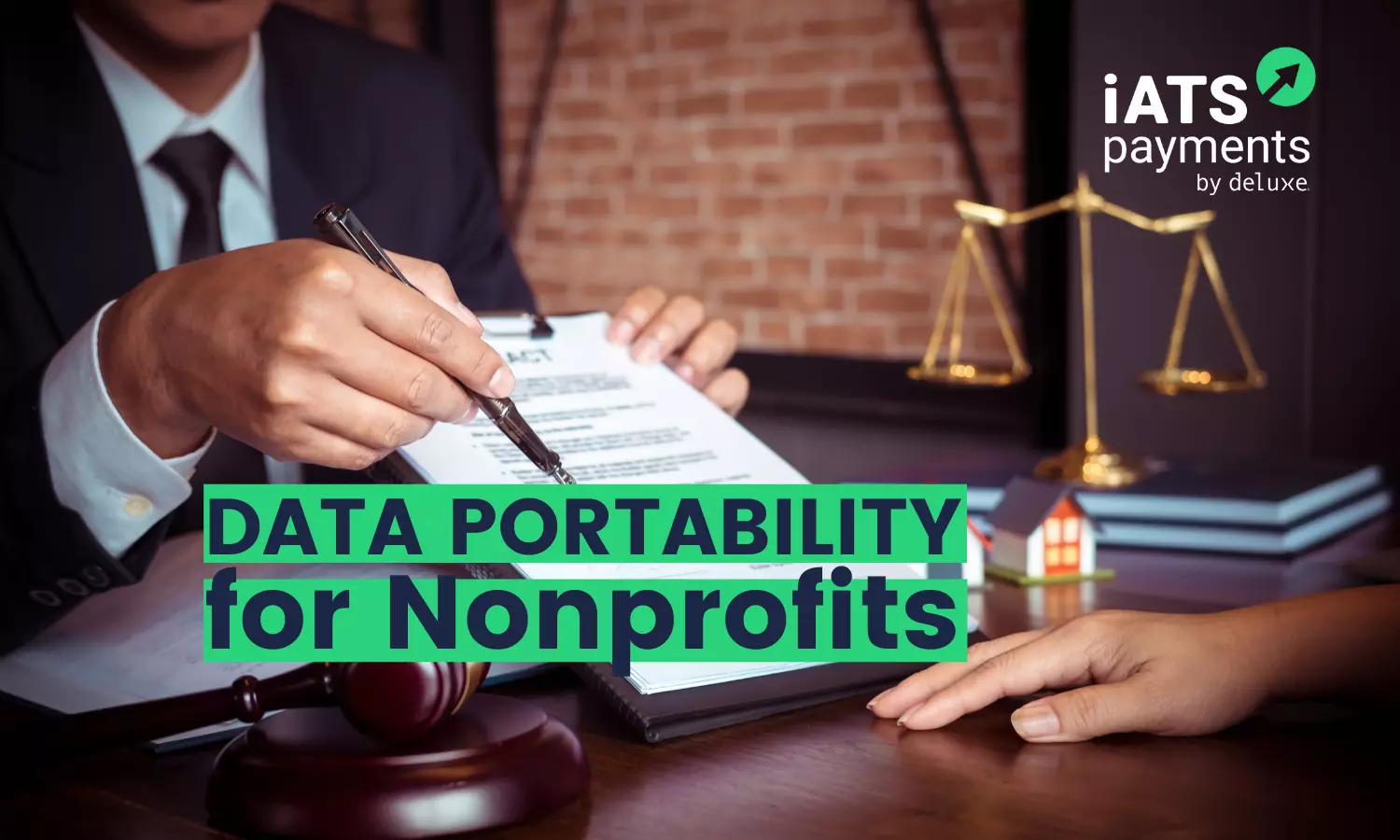As more and more nonprofits transition to fundraising and accepting donations online, many are adopting donor management and fundraising platforms with integrated payment processing tools. This allows organizations to understand and maximize their relationships with donors by building a multi-faceted donor database, while providing a personalized and seamless donor experience. It also eliminates most manual data entry, saving time and resources.
So, you’ve done the research and selected the best donor management system for your nonprofit, but your current payment processor doesn’t support your new system. It stands to reason that you should be able to migrate your donor information to a new processor. However, many nonprofits have had difficulties getting their data released from their existing providers.
This is because the contracts they signed did not grant them ownership of the data they collected or the right to transfer it. As a result, many of them have lost their donor data and must spend valuable time and resources trying to pivot for the upcoming end-of-year giving season.
In this article, we will explore data portability for nonprofits, how it impacts your fundraising, and how you can ensure ownership of your nonprofit’s merchant data.
Understanding data portability
Data portability refers to your nonprofit’s ability to migrate or transfer merchant data and other associated information to a different platform, should you choose to change platforms.
Many payment processors, especially aggregators, do not allow their clients to port data to other providers. This is because they operate on a reseller model, where the payment provider serves as the merchant of record and thus owns the data collected. Many nonprofits do not realize this, and sign contracts with these aggregators because of marginally lower processing rates.
These payment processors use these tactics as a client retention strategy by making the switching cost for your nonprofit so high that it acts as a deterrent, essentially holding your data hostage.
Data and fundraising
Credit card and transaction data are essential to maintain and grow your base of recurring donors and for donor stewardship efforts. The value of one major gift can exceed all donations from one-time donors in an entire year. It is vital for you to continuously build relationships with donors in order to eventually ask for a major gift successfully.
To build solid relationships with your donors you need to maintain detailed profiles, ranging from their interests and hobbies to credit card and transaction data. Having this data will help your nonprofit engage with donors in a personalized manner, extend their involvement in other areas, and develop plans for future engagement. Donors appreciate their contributions being recognized and will be more likely to donate if they feel valued.
Maintaining a detailed record of your donors’ contribution history will help you accurately plan future donation requests. Based on previous donation activity, you can ask for realistic increases to gift amounts and promote giving channels your supporters trust.
When you are ready to change processors, not being able to migrate donor data will jeopardize your nonprofit’s ability to secure major gifts. This will force you to instead focus your resources on shorter-term fundraising, which provides a markedly reduced return on investment.
Not having access to transaction data will also negatively impact your reconciliation efforts. This is because reconciliation procedures generally involve various reports used to analyze processed transactions.
Ensuring data ownership
The main reason some providers refuse to migrate card data is that the contract signed by the nonprofit stipulates the processor has the ‘right to hold’ the data. You should be wary of this type of verbiage in the contract, and make sure you secure the ‘right to transfer’ data.
To ensure ownership of your data, you should work with processors operating on a payments service provider model instead of those that are merchants of record, like aggregators. This way, you as the merchant have more control, and the provider only needs to implement your instructions and ensure proper protections are in place. Depending on your location, you may also be protected by legislation such as the GDPR.
In general, it can be useful to work with payment processors that have a history of working with nonprofits. Such companies are more likely to provide personalized service and offer contracts or terms of service that better suit your needs as a nonprofit. Many processors integrate with software you may already be using, and you can leverage your relationship with your processor to provide a better donor experience.
Nonprofits needs are different. Too many times vendors don’t fully understand the challenges nonprofit organizations face, applying the same terms of service as for-profit companies, to the detriment of charities everywhere. Limitations on data portability is yet another restriction that diverts critical resources away from your goal. Working with a nonprofit-focused processor will give you the peace of mind you need to focus on your mission, without unnecessarily adding stress to an already full plate.



 Support Center
Support Center